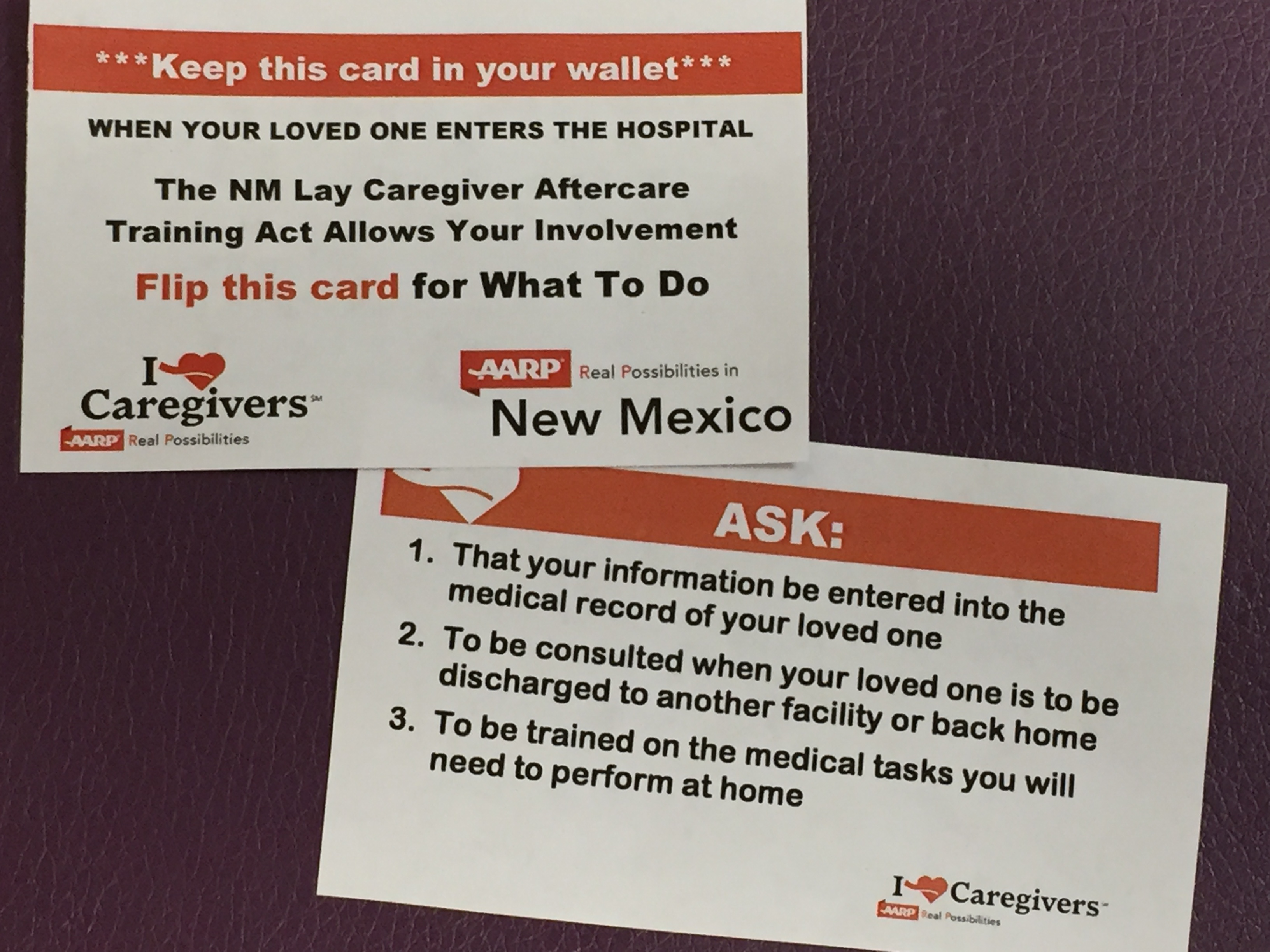AARP Hearing Center

If you are a family caregiver in New Mexico there is a new law that can help you be included in your loved one’s care when that person is admitted into the hospital. It’s called the New Mexico Lay Caregiver Aftercare Training Act, also known as the CARE Act.
“AARP recognizes the critical roles that family caregivers play in taking care of their loved ones,” said Gene Varela, AARP New Mexico State Director. “We also know that when a person is admitted into the hospital it can be a very fearful and confusing time.”
“The first component of the new law is making sure the person that is actually caring for the patient and will be the one doing any follow-up care at home, is recorded into the person’s hospital record. That way that person can be included in the process and receive all the important information,” Varela said.
Once that person is included in the record the two other provisions of the Act go into effect:
- The family caregiver is notified if the loved one is to be discharged to another facility or back home.
- The hospital consults with the caregiver about the medicals tasks – such as medication management, injections and wound care – that the family caregivers will perform at home.
“Our goal now is to let as many people – caregivers, care recipients and health care workers and anyone who might become a caregiver – know about this important new measure, because its’ going to be up to family caregivers to ask to be included in the record as well as health care workers to let people know they have that option,” Varela said.
To help remind people about the CARE Act and what to do, AARP New Mexico is offering people a simple wallet card they can keep with them that reminds caregivers to ask to be included in the record and included in the process throughout their loved one’s hospital stay.
To request a wallet card visit: action.aarp.org/NMcaregivers
Currently there are 419,000 caregivers in New Mexico helping their loved ones to live independently, keeping them at home where they want to be. The unpaid care they provide is valued at $3.1 billion annually.































































